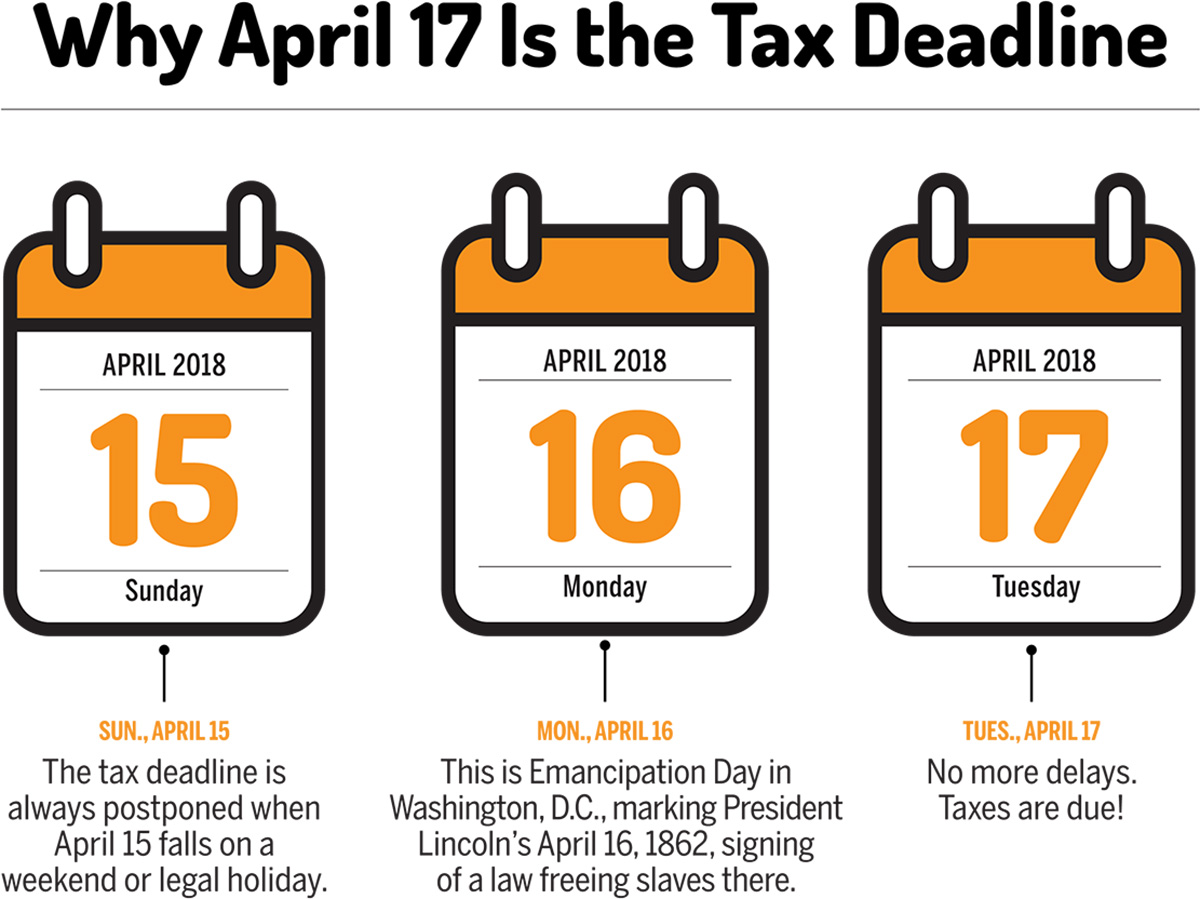

Finance
How To Deal With Midland Credit Management
Modified: March 1, 2024
Learn effective strategies to deal with Midland Credit Management and regain control of your finances. Gain insights on managing debt, negotiating settlements, and protecting your financial future.
(Many of the links in this article redirect to a specific reviewed product. Your purchase of these products through affiliate links helps to generate commission for LiveWell, at no extra cost. Learn more)
Table of Contents
Introduction
Dealing with debt collectors can be a stressful and overwhelming experience, especially when you receive calls and letters from companies like Midland Credit Management. As one of the largest debt buyers and collectors in the United States, Midland Credit Management (MCM) is known for pursuing outstanding debts on behalf of creditors.
Whether you are currently dealing with MCM or want to be prepared for any future encounters with this debt collection agency, it is important to understand your rights and the steps you can take to handle the situation effectively.
In this article, we will explore what Midland Credit Management is, outline your rights when dealing with debt collectors, and provide a step-by-step guide on how to handle interactions with MCM in the most efficient way possible.
It’s important to note that the information provided in this article is for informational purposes only and should not be considered legal or financial advice. It is always recommended to consult with a professional if you have specific concerns or questions regarding your personal financial situation.
What is Midland Credit Management?
Midland Credit Management (MCM) is a subsidiary of Encore Capital Group, Inc. – one of the leading debt purchasing and debt collection companies in the United States. MCM specializes in the collection of consumer debts that have been purchased from original creditors or other debt buyers.
When individuals default on their credit card payments, medical bills, or other types of debt, their accounts are often sold by the original creditors to debt buyers like Midland Credit Management. These debt buyers then attempt to collect on the outstanding balances to recoup their investment.
MCM operates as a third-party debt collection agency and may contact consumers through phone calls, letters, or through their online portal. Their primary goal is to recover the owed amount, typically by working with the consumer to establish payment arrangements or negotiate a settlement.
It’s important to note that while MCM is a well-known and established debt collector, you should always verify the legitimacy of any communication you receive. Unfortunately, scammers sometimes pose as debt collectors to trick individuals into providing personal or financial information. If you have any doubts about the authenticity of a debt collector, it is crucial to take appropriate steps to protect yourself.
Understanding Your Rights
When dealing with debt collectors like Midland Credit Management, it is essential to be aware of your rights as a consumer. The Fair Debt Collection Practices Act (FDCPA) is a federal law that outlines the rules and regulations debt collectors must follow when attempting to collect a debt. Here are some key rights that you should be aware of:
- Protection from harassment: Debt collectors are prohibited from engaging in practices that are abusive, harassing, or deceptive. They cannot threaten you, use obscene language, or continuously call you with the intent to annoy or harass.
- Verification of debt: If you dispute the validity of a debt or request verification of the debt, the debt collector must provide you with information to validate the debt, including the amount owed and the name of the original creditor.
- Right to cease communication: You have the right to request that a debt collector stops contacting you. You can do this by sending a written letter outlining your request. However, it’s important to note that this does not eliminate the debt, and the collector may still pursue legal action.
- Right to dispute: If you believe that the debt is incorrect or that you do not owe it, you have the right to dispute the debt with the collector. You can do this by sending a written letter within 30 days of receiving the validation notice.
- Protection from unfair practices: Debt collectors cannot engage in unfair practices, such as charging excessive fees or threatening illegal actions. They also cannot misrepresent themselves or the amount owed.
It is crucial to familiarize yourself with your rights under the FDCPA, as they provide important protections against abusive or deceptive debt collection practices. If you believe that a debt collector, including MCM, has violated your rights, you may file a complaint with the Consumer Financial Protection Bureau (CFPB) or seek legal assistance.
Keep in mind that state laws may also provide additional protections, so it is beneficial to research the specific regulations in your state regarding debt collection.
Steps to Deal with Midland Credit Management
When facing debt collection from Midland Credit Management (MCM), it is important to approach the situation with a proactive mindset. By taking the following steps, you can navigate the process more effectively and potentially reach a resolution that suits your financial circumstances:
- Request Proof of Debt: The first step is to request proof of the debt from Midland Credit Management. This can be done by sending a debt validation letter, which asks MCM to provide documentation that verifies the debt is legitimate and accurate. It is important to send this letter within 30 days of receiving a communication from MCM.
- Validate the Debt: Once you have requested proof of the debt, it is crucial to carefully review any documentation you receive. Ensure that the debt belongs to you, the amount is accurate, and the statute of limitations has not expired. If any discrepancies or issues arise, you can dispute the debt with MCM.
- Negotiate a Settlement: If the debt is valid and you are in a position to make a payment, consider negotiating a settlement with Midland Credit Management. Start by offering a lower amount as a lump sum payment. Debt collectors like MCM may be open to accepting a reduced payment to settle the debt in full.
- Consider Payment Plans: If you are unable to pay the debt in a lump sum, you can discuss setting up a payment plan with MCM. This allows you to make regular monthly payments until the debt is fully paid off. Make sure the repayment terms are feasible for you and align with your financial capabilities.
- Seek Legal Assistance: If you are unable to reach a resolution or feel that MCM is not abiding by the FDCPA regulations, it may be necessary to seek legal advice. A consumer protection attorney can guide you through the process, handle communication with MCM on your behalf, and help protect your rights.
Remember, it is essential to keep records of all communications with Midland Credit Management, including dates, times, names of representatives, and any written correspondence. This documentation can serve as evidence if any legal action becomes necessary.
Additionally, be cautious when providing any personal or financial information and verify the legitimacy of any communication from MCM. Scammers often pose as debt collectors to obtain sensitive information, so it is crucial to stay vigilant and protect yourself from potential fraud.
By following these steps and understanding your rights, you can take a proactive approach to dealing with Midland Credit Management and work towards a resolution that aligns with your financial situation.
Request Proof of Debt
When dealing with Midland Credit Management (MCM) or any other debt collection agency, it is crucial to start by requesting proof of the debt. This step is important to ensure that the debt is legitimate and accurate. By doing so, you can protect yourself from potential errors or fraudulent claims. Here’s how to request proof of debt from MCM:
- Write a Debt Validation Letter: Draft a letter to Midland Credit Management requesting validation of the debt. In the letter, include your full name, address, and account number (if available). State that you are requesting proof that the debt is valid and that MCM has the legal right to collect it.
- Send the Letter via Certified Mail: It is crucial to send the debt validation letter via certified mail with a return receipt requested. This provides you with proof that the letter was sent and received by MCM. Keep a copy of the letter and the postal receipt for your records.
- Keep a Record of Communication: Maintain a detailed record of all communication with MCM. Note the date and time of any phone calls, the names of representatives you spoke with, and a brief summary of the conversation. This documentation can be useful if you need to escalate the situation or seek legal assistance.
- Wait for Response: Legally, Midland Credit Management must respond to your debt validation letter within 30 days. They should provide you with documentation that verifies the debt, such as the original creditor’s name, the full amount owed, and any payment history associated with the debt.
- Review the Documentation: Carefully review the documentation provided by MCM. Ensure that the debt belongs to you and that the information is accurate. If there are any discrepancies or you believe the debt is incorrect, you have the right to dispute it with MCM.
By requesting proof of debt, you assert your rights as a consumer and ensure that the debt is valid and properly substantiated. If MCM fails to provide the required documentation within the specified timeframe, they may not be able to continue collection efforts. It is important to consult with a legal professional if you encounter any challenges or concerns during this process.
Remember, requesting proof of debt is an essential first step in dealing with Midland Credit Management or any other debt collection agency. It allows you to verify the legitimacy of the debt and protect yourself from potential errors or fraudulent claims. Stay proactive and assert your rights as a consumer when dealing with debt collectors.
Validate the Debt
After requesting proof of the debt from Midland Credit Management (MCM), it is important to validate the debt. Debt validation is the process of reviewing the documentation provided by MCM to ensure that the debt is accurate and belongs to you. By validating the debt, you can identify any discrepancies or errors and take appropriate action. Here’s how to validate the debt:
- Review the Documentation: Carefully examine the documentation provided by MCM in response to your debt validation request. Look for information such as the original creditor’s name, the full amount owed, and any payment history associated with the debt.
- Check for Accuracy: Compare the information in the documentation with your own records, if available. Ensure that the name on the debt, account numbers, and any other identifying information aligns with your own records. Pay attention to any discrepancies or errors.
- Verify Legitimacy: Confirm that the debt collector, Midland Credit Management, has the legal right to collect the debt. They should provide evidence of their ownership of the debt, typically through documentation from the original creditor.
- Check Statute of Limitations: Determine if the debt is within the statute of limitations for your state. The statute of limitations sets the time limit for debt collectors to sue you for payment. If the debt is past the statute of limitations, they may not be able to legally pursue collection.
- Dispute Inaccurate Information: If you find any inaccuracies or errors in the documentation, you have the right to dispute the debt with Midland Credit Management. Send a written letter outlining the discrepancies and requesting that MCM correct or remove the information.
Validating the debt is a crucial step in the debt collection process. It allows you to ensure the accuracy of the information provided by Midland Credit Management and protect yourself from potentially paying a debt that is not yours or has incorrect details. If you discover any inconsistencies or have concerns about the validity of the debt, consider seeking legal advice or consulting with a consumer protection agency.
Remember, MCM has the legal obligation to provide accurate and substantiated information about the debt. By validating the debt, you are asserting your rights as a consumer and taking steps to protect yourself during the debt collection process.
Negotiate a Settlement
When dealing with Midland Credit Management (MCM), it is possible to negotiate a settlement agreement. A settlement allows you to resolve the debt by paying a reduced amount rather than the full outstanding balance. Negotiating a settlement can be a viable option if you are unable to pay the debt in full or if you want to avoid potential legal action. Here are the steps to negotiate a settlement with MCM:
- Assess Your Financial Situation: Before entering into settlement negotiations, evaluate your financial capabilities. Determine how much you can realistically afford to pay towards the debt. This will help you establish a starting point for negotiations.
- Contact Midland Credit Management: Initiate contact with MCM to express your willingness to settle the debt. You can reach out via phone or in writing, whichever method you feel comfortable with. Be prepared to provide your account information and explain your financial situation.
- Offer a Reduced Lump Sum: Start your negotiation by offering to settle the debt for a reduced lump sum payment. Debt collectors like MCM may be open to accepting a discounted amount to resolve the debt quickly.
- Document Everything: Keep thorough records of all your communication with MCM during the negotiation process. Make notes of the names of the representatives you speak with, the dates and times of the conversations, and the details of any agreements reached. This documentation can be important if any disputes arise in the future.
- Get the Agreement in Writing: If you and MCM reach a mutual settlement agreement, request that they provide the terms of the agreement in writing. The agreement should clearly state the reduced amount to be paid, any payment deadlines, and any conditions or stipulations agreed upon.
- Make Payment as Agreed: Once you have the settlement agreement in writing, fulfill your end of the agreement by making the agreed-upon payment by the specified deadline. Ensure you retain proof of payment for your records.
Remember, negotiating a settlement with Midland Credit Management can result in a more manageable resolution to the debt. However, it is important to approach negotiations with a clear understanding of your financial situation and be prepared for potential counteroffers from MCM.
If you do reach a settlement agreement, it is essential to fulfill your end of the agreement and make all payments as agreed upon. This allows you to resolve the debt and potentially improve your financial situation by avoiding further collection efforts or legal action from MCM.
If you find the negotiation process challenging or need assistance, consider consulting with a consumer protection attorney who can guide you through the process and provide you with the necessary support.
Consider Payment Plans
If you are unable to pay off the debt in a lump sum or negotiate a settlement with Midland Credit Management (MCM), you may want to explore the option of setting up a payment plan. A payment plan allows you to make regular monthly payments towards the debt over a specific period of time. Here’s how to consider and establish a payment plan with MCM:
- Evaluate Your Financial Situation: Assess your income, expenses, and overall financial situation to determine how much you can reasonably afford to pay each month towards the debt. Be honest with yourself about what you can comfortably manage.
- Contact Midland Credit Management: Get in touch with MCM and express your interest in setting up a payment plan. Discuss your financial circumstances, explain your ability to make regular payments, and propose a monthly payment amount that is feasible for you.
- Negotiate Terms: Once you’ve initiated contact, be prepared to negotiate the terms of the payment plan with MCM. They may have specific guidelines or requirements for setting up a payment arrangement. Be open to finding a compromise that works for both parties.
- Get the Agreement in Writing: Once you and MCM have agreed upon a payment plan, request that the terms of the agreement be provided to you in writing. Ensure the agreement includes the monthly payment amount, the duration of the payment plan, and any other pertinent details agreed upon.
- Make Payments as Agreed: Stay committed to the agreed-upon payment plan and make your payments on time each month. Adhering to the payment schedule will help you gradually reduce the debt and demonstrate your willingness to resolve the outstanding balance.
- Keep Documentation: Maintain records of all correspondence and payments related to the payment plan. Keep track of dates, amounts, and any communication with MCM regarding the plan. This documentation will serve as proof of your commitment and assist in resolving any potential disputes or issues.
By considering a payment plan with Midland Credit Management, you can establish a structured approach to repay the debt over time. It is essential to be proactive, communicate openly, and honor the terms of the agreement to successfully resolve the debt.
If you encounter difficulties or have concerns while working out a payment plan, don’t hesitate to seek guidance from a consumer protection attorney or a reputable credit counseling agency. They can provide valuable advice and help you navigate the process to achieve a fair and manageable resolution of your debt.
Seek Legal Assistance
In some cases, dealing with Midland Credit Management (MCM) may become complex or challenging, and seeking legal assistance may be necessary to protect your rights and interests. If you find yourself facing harassing or deceptive practices, or if you believe your rights have been violated, it is essential to consult with a consumer protection attorney. Here are some key considerations when seeking legal assistance:
- Evaluate Your Situation: Assess the severity of the issues you are facing with MCM. If you believe your rights have been violated, you are being harassed, or you have been subjected to unfair and illegal practices, it is crucial to seek legal guidance.
- Research Consumer Protection Attorneys: Look for consumer protection attorneys who specialize in debt collection cases or have experience dealing with Midland Credit Management. Research their background, reputation, and success rate in similar cases.
- Schedule a Consultation: Contact the attorney and schedule a consultation to discuss your situation. During the consultation, explain the details of your case, provide any evidence or documentation you may have, and ask any questions you have about your rights and legal options.
- Consider the Costs: Discuss the legal fees and costs associated with hiring an attorney. Many consumer protection attorneys offer free initial consultations and may work on a contingency basis, meaning they only collect fees if they successfully resolve your case.
- Follow the Attorney’s Guidance: If you choose to engage an attorney, carefully follow their guidance and advice throughout the process. They will guide you on how to communicate with MCM, handle any legal proceedings if necessary, and advocate for your rights.
- Maintain Communication: Keep your attorney informed about any new developments, communications, or interactions with MCM. This will help them stay up-to-date and provide you with the best possible legal representation.
Seeking legal assistance can provide you with the guidance and expertise needed to navigate the complexities of dealing with Midland Credit Management. An experienced attorney can help protect your rights, negotiate on your behalf, represent you in legal proceedings if necessary, and ensure that you are treated fairly throughout the debt collection process.
Remember, it is important to choose an attorney with a solid understanding of consumer protection laws and debt collection practices. Their knowledge and experience can make a significant difference in achieving a favorable outcome and resolving your debt-related issues effectively.
Always consult with a legal professional who can evaluate your specific situation and provide tailored advice based on your circumstances.
Conclusion
Dealing with Midland Credit Management (MCM) or any debt collection agency can be overwhelming, but it is crucial to understand your rights and take appropriate steps to handle the situation effectively. Throughout this article, we have discussed key strategies for dealing with MCM, including requesting proof of debt, validating the debt, negotiating a settlement, considering payment plans, and seeking legal assistance when necessary.
Remember that under the Fair Debt Collection Practices Act (FDCPA), you have the right to protection from harassment, verification of debt, the ability to dispute the debt, and safeguards against unfair practices. Understanding these rights empowers you to assert yourself and maintain control of the debt collection process.
If you receive communication from MCM, start by requesting proof of the debt to ensure its accuracy and legitimacy. Validate the debt by carefully reviewing the documentation provided, checking for accuracy, and verifying that MCM has the legal right to collect the debt. Depending on your financial situation, negotiate a settlement or consider setting up a payment plan with MCM to resolve the debt gradually.
If you encounter challenges or believe your rights have been violated, seeking legal assistance from a consumer protection attorney can provide valuable guidance and support. They can help navigate the complexities of the debt collection process and ensure your rights are protected.
Throughout the entire process, keep detailed records of all communication, agreements, and payments. These records will serve as evidence and protection in case of disputes or legal proceedings.
Remember, every situation is unique, and it is essential to assess your own financial circumstances, consult with professionals when needed, and make decisions that align with your financial well-being.
Lastly, maintaining open communication and seeking resolution in a timely manner can help ease the stress associated with debt collection and provide you with the opportunity to effectively manage your financial obligations.
By understanding your rights, being proactive, and taking appropriate steps, you can navigate the process of dealing with Midland Credit Management or any other debt collection agency more confidently and work towards resolving your outstanding debts.














